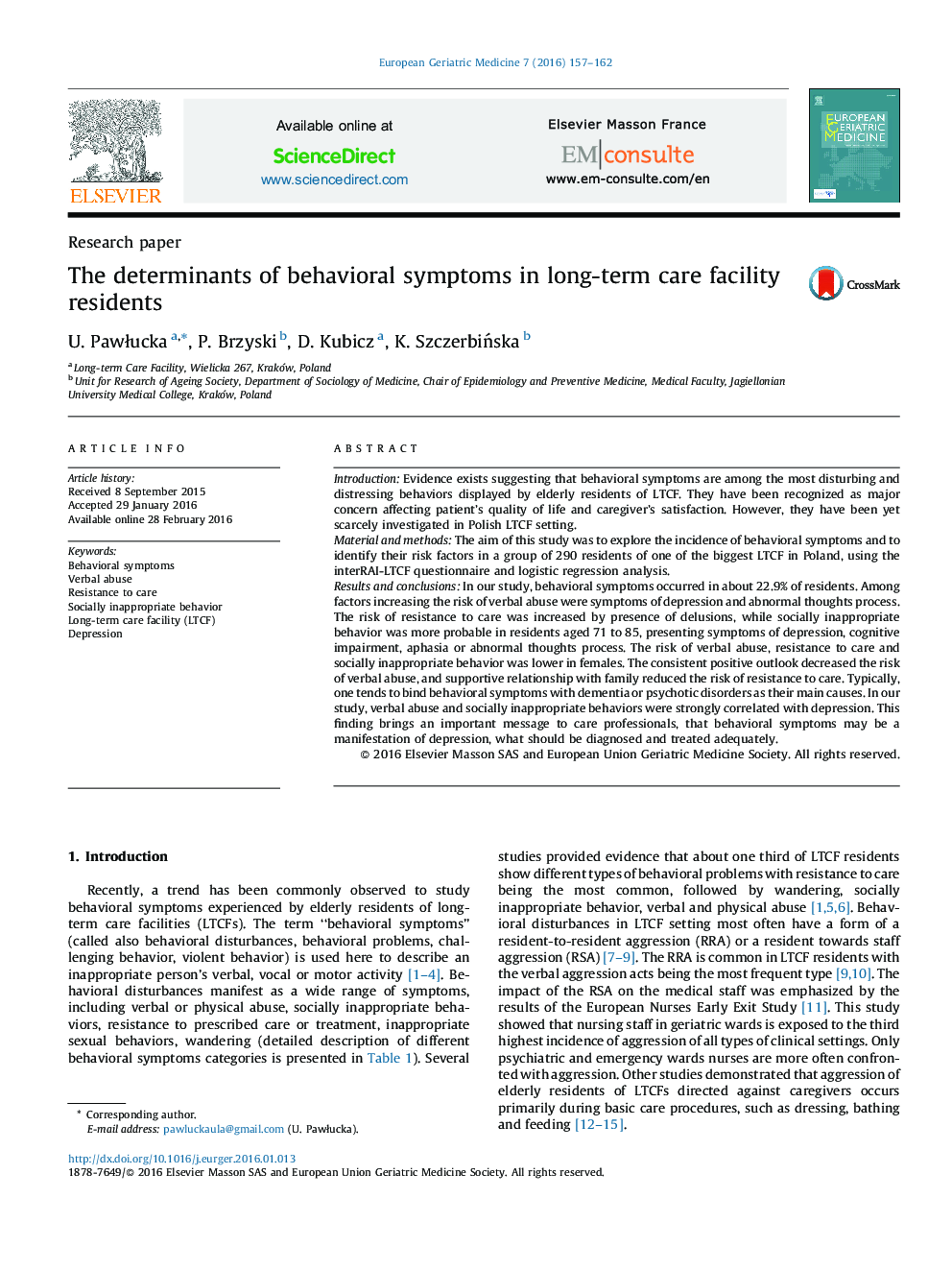| Article ID | Journal | Published Year | Pages | File Type |
|---|---|---|---|---|
| 3323871 | European Geriatric Medicine | 2016 | 6 Pages |
IntroductionEvidence exists suggesting that behavioral symptoms are among the most disturbing and distressing behaviors displayed by elderly residents of LTCF. They have been recognized as major concern affecting patient's quality of life and caregiver's satisfaction. However, they have been yet scarcely investigated in Polish LTCF setting.Material and methodsThe aim of this study was to explore the incidence of behavioral symptoms and to identify their risk factors in a group of 290 residents of one of the biggest LTCF in Poland, using the interRAI-LTCF questionnaire and logistic regression analysis.Results and conclusionsIn our study, behavioral symptoms occurred in about 22.9% of residents. Among factors increasing the risk of verbal abuse were symptoms of depression and abnormal thoughts process. The risk of resistance to care was increased by presence of delusions, while socially inappropriate behavior was more probable in residents aged 71 to 85, presenting symptoms of depression, cognitive impairment, aphasia or abnormal thoughts process. The risk of verbal abuse, resistance to care and socially inappropriate behavior was lower in females. The consistent positive outlook decreased the risk of verbal abuse, and supportive relationship with family reduced the risk of resistance to care. Typically, one tends to bind behavioral symptoms with dementia or psychotic disorders as their main causes. In our study, verbal abuse and socially inappropriate behaviors were strongly correlated with depression. This finding brings an important message to care professionals, that behavioral symptoms may be a manifestation of depression, what should be diagnosed and treated adequately.
